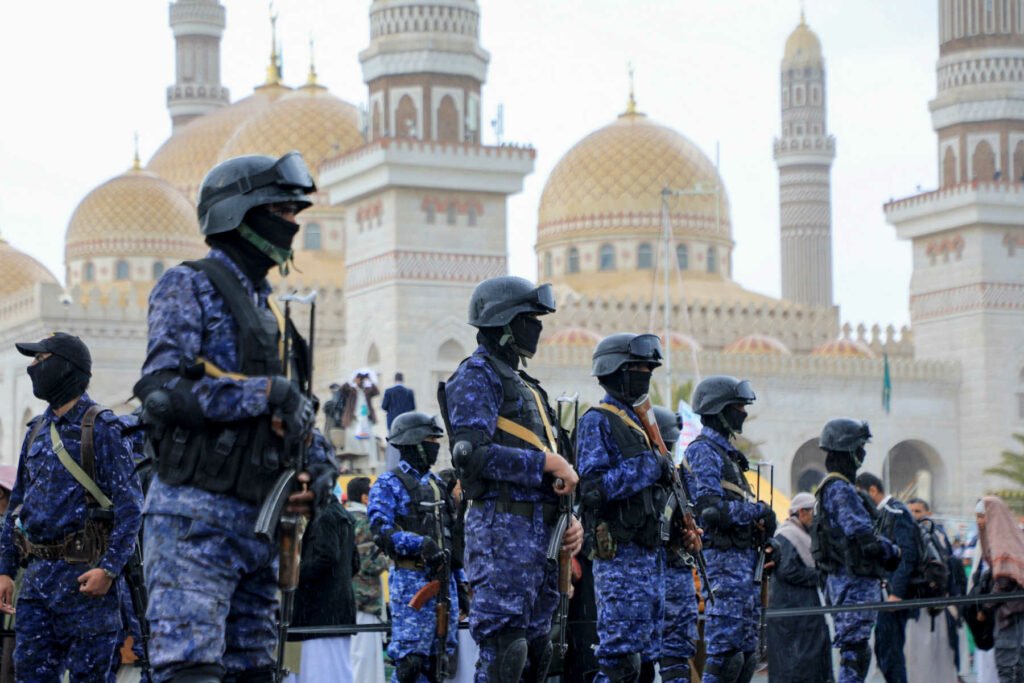“The scenario for Yemen is very bad now,” al-Iryani added. Yemeni government forces and other anti-Houthi groups, he said, are now calling for “a military option” against the Houthis, including a new offensive to try and dislodge Houthi control of the key port of Hodeidah. That would reignite Yemen’s civil war, ending a tenuous truce that has held since 2022. In 2018, a Yemeni government offensive on Hodeidah backed by both Saudi Arabia and the United Arab Emirates led to a punishing siege, but ended with the Houthis still in control of the port.
Yemeni experts warn of the many ways the new Houthi terrorist designation by the U.S. could hurt Yemenis all over the country, not only in Houthi-controlled areas—by depleting banks of money, bankrupting wheat suppliers and eliminating what little access there is to basic health care across Yemen. “The designation will also impact the vital lifeline of remittances to Yemenis living in Houthi-controlled areas which accounts for a vast majority of the country’s population,” said Abdulwasea Mohammed, Oxfam’s policy, advocacy and media manager in Yemen. “Hundreds of thousands of families rely on these resources to make ends meet. A designation would push the entire country’s economy from crisis into free fall.”
“We need to see real accountability that helps Yemeni communities now and leads to a sustainable peace and stability—not designations that score political points and put communities at further risk,” Mohammed added. “We urge U.S. leaders to not place Yemenis in the middle of regional dynamics and consider the people who will actually suffer from this decision.”
The political roadmap that the U.N. envoy, Grundberg, has tried to secure is the result of years of backchannel talks between Saudi Arabia and the Houthis, mediated by Oman. The deal that the Saudis and Houthis had negotiated included the cessation of hostilities, security guarantees for Riyadh and plans for intra-Yemeni dialogue under U.N. auspices. The proposed roadmap was intended as a structure for delivering humanitarian and economic measures and steps toward a permanent cease-fire and inclusive talks among Yemen’s warring factions.
But any diplomatic breakthrough in Yemen was halted midstream after October 7, 2023, when the brutal Hamas-led attack into southern Israel led to Israel’s devastating war in Gaza. The Houthis, along with Hezbollah in Lebanon, declared war on Israel in solidarity with Palestinians in Gaza. Weeks later, the Houthis began to fire missiles and drones toward Israel and against shipping vessels linked to Israel, the United States and the United Kingdom in the Red Sea and beyond.
Since then, the Houthis have become a global concern, not just a Saudi problem, as their unabated Red Sea attacks have disrupted one of the world’s most important maritime trade routes between Europe and Asia. A U.S.-led aerial bombing campaign has not deterred the Houthis. Following Trump’s executive order, and given his track record during his first term, U.S. airstrikes on Yemen could soon increase.
A week before Trump’s inauguration, Grundberg briefed the U.N. Security Council on January 15 about the diplomatic efforts in Yemen. “At this critical juncture, any further escalation risks undermining existing commitments and would have devastating humanitarian consequences for Yemen’s people, who have already endured nearly a decade of unimaginable hardship,” he said. “The escalating cycle of strikes and counterstrikes has hindered the prospects of peace and diverted crucial attention and resources from Yemen.”
Even with Trump’s re-designation of the Houthis as a terrorist group, Yemen experts and analysts caution that any prospect for the U.N.’s political roadmap is also being held hostage by regional tensions. The war in Gaza between Hamas and Israel has “pushed Yemen off the crisis priority list, with international attention now fixated on perceived ‘bigger threats,’ such as the Houthi attacks in the Red Sea,” Fatima al-Asrar, a non-resident scholar at the Middle East Institute, told Democracy in Exile. “As a result, the U.N.-led peace process, which was already on fragile footing, is losing momentum as the region’s key players are distracted. At the same time, fear of uncalculated moves by the Houthis or Iran has created urgency for ‘diplomacy at any cost.’”
“But while diplomats may find common ground,” she added, “they risk clashing with Yemeni public sentiment, especially if the process is too rushed.” Al-Asrar believes that recent events in the region, including the sudden fall of Bashar al-Assad’s regime in Syria, Israel’s degradation of Hezbollah in Lebanon and Iran’s other setbacks, have all “raised the ceiling of demands” for Yemenis, who are “increasingly unwilling to accept a settlement that grants the Houthis a power-sharing role.”
“The U.N.’s real challenge is ensuring that any deal reflects the aspirations of the Yemeni people, not just the priorities of diplomats,” she said. “Regional distraction paired with domestic dissatisfaction is a dangerous combination. Without meaningful engagement on both fronts, any roadmap risks collapsing before it even begins.”
Grundberg himself fears that regional uncertainty could derail any peace process in Yemen. As he told the Security Council in mid-January, “Against the background of escalation in the region and uncertainty in the region and international community, I am concerned that parties may reassess their options for peace and make miscalculations based on flawed assumptions.”
Al-Asrar said that Yemen’s many warring parties—from the Houthis, to the internationally recognized government effectively in exile, to other groups like the secessionist Southern Transitional Council—”all have competing interests that make coordination and compromise extremely fragile.” The outside influence of often-competing actors, particularly Saudi Arabia and the UAE, “undermines cohesion within the anti-Houthi factions,” she said. “The absence of a unified vision among these stakeholders means that even the most well-crafted agreement risks falling apart under competing agendas.”
Ibrahim al-Jalal, a non-resident scholar at the Carnegie Endowment for International Peace, sees many flaws in the political roadmap in Yemen proposed by the U.N. The biggest of all, he said, is the “lack of mutual concessions that pave the way for a genuine and durable resolution to the conflict in Yemen.”
